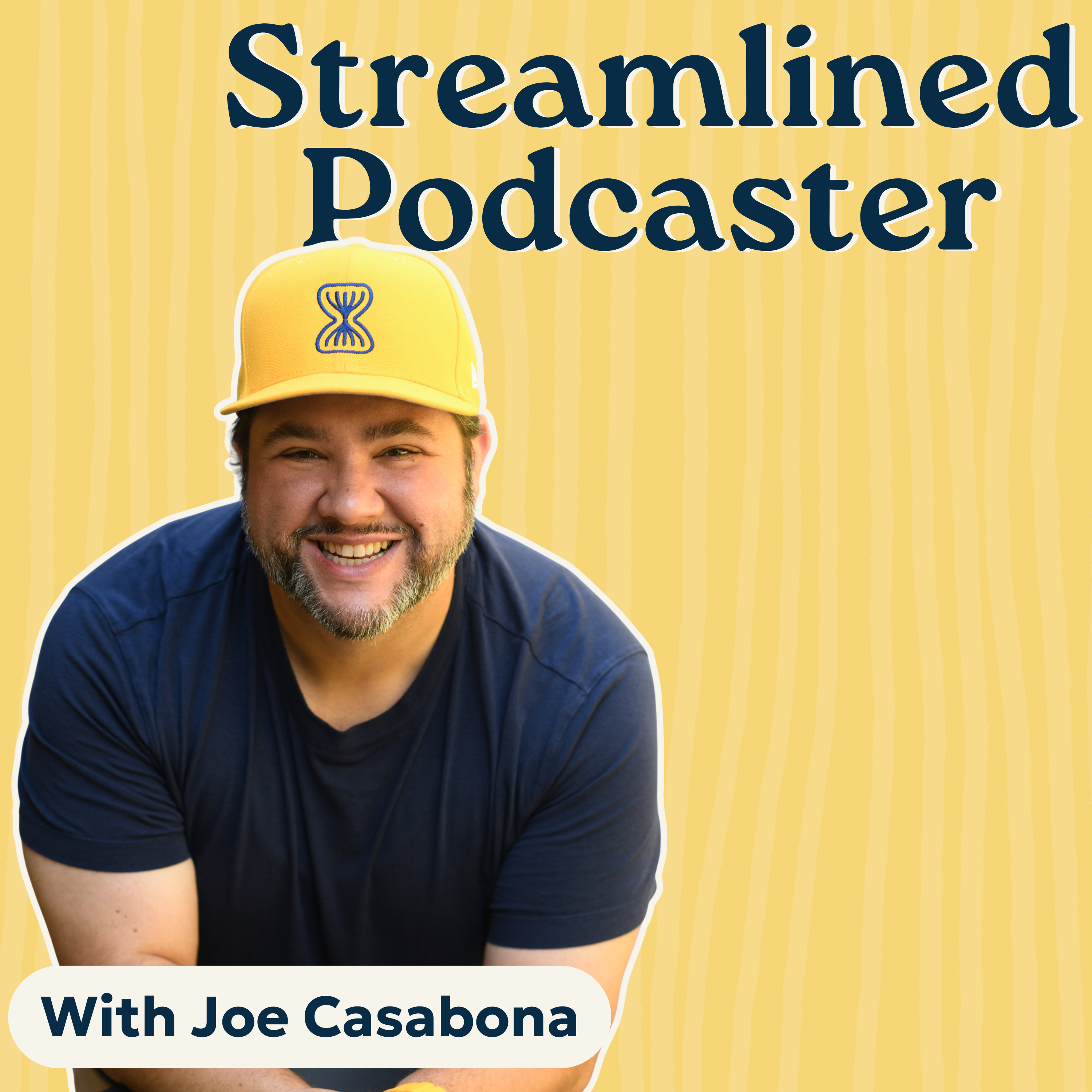Podcasting Made Simple
Podcasting Made Simple is the premier podcast about podcasting! We’re here to help podcast guests and podcast hosts reach more listeners and grow their income so they can change more lives! Join Alex Sanfilippo and other podcasting industry experts as they share how you can level up on either side of the mic! (Show notes and resources: https://PodMatch.com/episodes)
Podcasting Made Simple
How to Amplify Your Presence After Being a Podcast Guest | Chris Stone
Most podcast guests are missing out on much of the impact they could be making before, during, and after their podcast guesting appearances. But this doesn't have to be the case! In this episode, Chris Stone shares comprehensive strategies to maximize your influence so you experience a new level of engagement, connection, and value. As a result, you'll leave a lasting mark on the podcasting world. Get ready to amplify your presence and influence every time you're a podcast guest!
MORE FROM THIS EPISODE: HTTPS://PODMATCH.COM/EP/274
Takeaways
Effective promotion is crucial for podcast guests to maximize the impact of their appearances.
Content should be treated as a legacy, with a focus on creating extraordinary content that will resonate long after the episode ends.
Guests should prepare for their guest spots by understanding the target audience and crafting a compelling narrative.
Taking control of content includes recording audio and video locally and asking hosts for the files to promote the episode.
Guests should strive to look and sound their best during recordings and be ready to pivot during the podcast.
Repurposing content with purpose allows guests to reach new audiences and add value to their community.
Embracing new platforms and technologies can amplify a guest's presence and reach.
Guests should aim to leave a lasting legacy through their content, inspiring and serving the world.
Chapters
00:00 Introduction
01:10 The Challenge of Effective Promotion
03:05 Content as Legacy
04:01 Preparing for Your Guest Spot
07:08 Taking Control of Your Content
08:31 Looking and Sounding Your Best
10:23 Being Ready to Pivot
11:19 Repurposing with Purpose
15:26 Embracing New Platforms and Technologies
15:53 Leaving a Lasting Legacy
16:22 Conclusion
MORE FROM THIS EPISODE: HTTPS://PODMATCH.COM/EP/274
PodMatch has officially launched a podcast network for independent interview-based podcasts! To apply to be part of the network, please visit https://PodMatch.com/network and press the "Join Network" button in the top center of the screen. While you're there, be sure to check out some of the incredible shows in the network!
You're listening to Podcasting Made Simple. I'm your host, Alex Sanfilippo. For this episode's guide and resources, please visit podprose .com slash 274. And now let's get to the episode. Beautiful people of planet Earth, my name is Chris Stone, I'm at Cast Ahead and today we're going to find out how you can get the most bang for your buck out of your podcast guest appearances. Today my goal is to empower you, both the seasoned veteran podcaster and maybe the aspiring podcast noob, with some turnkey strategies that go beyond the recording sessions, the Zoom calls and... all your efforts to get on as many podcasts as possible. It's gonna help you get found, liked, and trusted by more people, potential listeners, viewers, and hopefully, for a lot of you, customers. So, we all know that feeling of stepping out of that podcast studio or your virtual session, right? You crushed it. You met this wonderful new podcast host, and you just know that you impacted their audience and their community. You're so proud of all the insights and the golden nuggets of wisdom that you've shared with everyone. But you know what? After a few weeks, it's kind of crickets. And you're kind of wondering, what now? Are you just kind of running to the next one and the next one and the next one and the next podcast? Be a guest on this one, be a guest on this one, because that's what you heard you're supposed to do, right? Put in the reps, put in the reps, get better. But you know, weeks later after that one that you knew you crushed on, you're... You're wondering, is the host even going to promote my episode? Are they even going to post it? I mean, and by the way, like, where are they posting it? God, I don't have time to Google them. Should I just hit them up in the DMs? Or worse yet, what was it that I said on that episode? I can't remember. I've done like eight podcasts since then. I'm just trying to figure out, I know it was something that I said that I could use to promote my business, further my mission. and increase the reach of my voice. You see, this is where the challenge lies. It's this missed opportunity of not effectively promoting yourself before, during, and after a podcast episode. And I'm not talking about being the salesy podcast guest, you know, this is the worst, right? You're constantly promoting your course and your book and your event and, you know, stick them in the funnels and all of that stuff. I'm talking about you. Being on these podcasts and leaving those precious golden nuggets buried in this vast ocean of content or gathering dust on the digital shelf, never to be found. What I'm gonna do today is I'm gonna lay out a simple little effective guide for you to navigate this crazy evolving landscape of podcasting. We're gonna figure out the best way for you, the podcast guests, to make the most of your podcasting experience. So your knowledge and wisdom, will still be remembered even after the show's done. So think about this first and foremost. I want to talk about something that not many people talk about when it comes to podcasting, and it's legacy. Think about this. Your content will outlive you. I believe that if you treat your content like this, let me say this again, your content will outlive you. If you treat it like this, your content will become extraordinary. After today, I hope you can implement maybe just at least one of these tactics. And this is going to allow you to uncover that quality content from your shows and use it for years and years and years afterward. So let's get started. Number one, what we all should be doing that we probably don't do enough, if we're all being honest, is to prepare for your guest spot. And I'm not talking about just some basics, like let me just Google a bio and make sure I send them a headshot or whatever. You gotta do some homework. You gotta understand first and foremost the target audience of the podcast. If you're not doing this already and you need to start researching the podcast you're going to be a guest on, the show itself, but more importantly, the audience that the podcast serves. And if you're stuck on that last one, this is the easy thing to do. Just ask the host. Hey, Molly, I can't wait to be on the Educated Entrepreneur podcast with you. Can you please let me know what... The key audience is who's your target audience? Who do you serve? And what issues that they have? So I can best prepare and deliver a tremendous amount of value to your audience. Now I don't know about you, if you're a podcast host and your guest emails that to you or texts it to you or hits slides into your DMs and sends that to you, that is absolutely money. But don't misunderstand the reasons why you want to be able to address the audience. It's not just because you want to do better and serve that audience from that podcast recording or that live show. That's absolutely paramount. And it will get you back on that show as well as other shows because that host is going to be like, this is a great guest. You have to go on this show and let me connect you with these other people. It's not just about that. It's because a lot of times you have a theme, you have a lane that you're staying in and there's... a lot you say a lot of the same things on these podcasts but when you can address different types of audiences while staying in your lane you're going to have lots of different content that says slightly different things to different audiences so you know you get these themes and these nuggets on many different podcasts and you'll need to alter and tweak that content slightly to accommodate these different audiences every time. And if you do that, you won't have a bunch of content where you're saying the exact same things you just have a different shirt on. So that's the first thing you need to do, understanding the audience. Then when you do all of that, you can craft a compelling narrative. Your talking points, your stories, it all can be aligned with this theme and this audience and the problems that they have. You know, chances are your podcast host of the show that you're going to be on has an idea or title in mind for the show that you're on with them, but... asking them beforehand what it is or maybe even suggesting something that aligns with what your theme and audience is. That allows for you to craft something a little bit beforehand so you guys are just like, what's going on and here's question, here's answer. You're actually at the end of this thing crossing the finish line together. So it's never a bad idea to create an outline of what you'd like to talk about for that particular show. But do not be afraid and be ready. to go off script because the host may want to take you a certain, or maybe you say something that all of a sudden sparks something and you don't want to, you know, take them back onto that road. You know, be a gracious guest and follow the host or follow these live questions that are coming in from their audience and make sure that you are ready to pivot like that. The other key thing, and this is key for you to have your content, is you want to take control. Acquiring that content yourself that means setting up your own camera and way to record audio and video yourself locally Many company or computers have a way to do this already with a with the webcam software or quick time for Mac or software like ecam or Stream yard, but you could do that locally you could set up a phone right next to your camera Which is a great way to do it. I'm doing it right now. I've got one right here next to my recording and because I want to have different alternate views of what I'm doing. Also ask the host beforehand, are you recording the audio and video? Can you share the files with me? And the reason why I want to do this, because I want to promote your show and send them to the link where your YouTube channel is, where your audio podcast is, wherever you, the host, wants me to send my viewers and the people that enjoy me to hopefully enjoy other people on your show. Okay, so that's beforehand. Now we're talking about during the podcast itself. First and foremost, you want to look, but more importantly, sound your best. I don't want to get in the weeds here in terms of your delivery on the podcast itself. Generally speaking, you want to make sure that your audio is clear. You don't have any outside noises going on. You know, there's not somebody, you know, out there blowing leaves outside your window. All those kinds of things. In terms of your camera, make sure that the camera doesn't have a thumbprint on the lens. There's a little room between the top of your head and the top of the frame, a little bit on the left, a little bit on the right. And make sure that there isn't distracting things in your background. You can have some things that show maybe your branding or maybe your personality. I like to keep things real. I know a lot of people like to do the fake virtual backgrounds and the green screens, but unless you've got really good lighting, sometimes you'll move your head and your ear will disappear. or you hold up your hand, it looks like you got two fingers instead of five. So you really want to be cognizant of like, let me just be myself, let me make sure I'm clear, but more importantly, that people can hear you clearly and there's not a lot of weird noises and things going on. And you could practice that yourself and record yourself and listen back and make sure that there's no weird noises going on. The other thing I mentioned was the, in terms of preparation was your outline and your eye contact. So when you have your outline, don't have it down in front of you. Make sure that it's up around your camera area so that you may look to the left or you may look to the right or you may look up a little bit or look down a little bit, but you're not like looking down and somebody's seeing the top of your head half the show or you're looking up and they're looking up your nostrils. You want to make sure that you've got eye contact and the camera isn't pointed straight up at you and they can see your spinning ceiling fan. Just these are simple things. It's inexpensive. It's just things you got to keep in mind when you're doing these things. where video is a component of it and you want to record yourself and use that on video, these are things you're going to want to be thinking about so when you have this content, it's not only usable, it's great content and the more you do it, the better you're going to get at it just like you've been doing right now with getting on all the podcasts that you can and being a great podcast guest. The next thing you want to do during the actual podcast itself is you want to make sure you're, I mentioned it earlier, Be ready to pivot a little bit. Watch for that curveball. You may get some surprises from the host in terms of questions, maybe from a live audience. It's actually a good thing. It's gonna show that you can take these questions and you're gonna get different facial expressions. You're gonna get answers that you probably never have had before and you're gonna get that, wow, I'm glad I recorded it because I was able to address this and you don't have to go, oh man, I wish it was recorded. You actually have it. You have the moment. that that facial expression happened and you can use it later in any kind of social media, your website, YouTube, et cetera. So the most important thing that we're gonna talk about, we talked about preparing before, we talked about during this whole thing and garnering your actual recording, but it's what you do after the show, okay? This is really the concept that gets thrown around a lot, that word repurposing, right? But it's imperative that you understand that, Before you can repurpose you must first have a purpose There is no repurposing without at first having a purpose. Okay, so first, you know many of you have an exclusively have an audio podcast an audio podcast only and now you're in the situation where you have a bunch of episodes that were recorded audio only and There's all this video going on. You're like, how do I you know square peg round hole kind of thing? in terms of turning this into content that you can use and firing up the video as a component of it or maybe actually turning an audio -only podcast into a video podcast. For what it's worth, my opinion is that everyone should be on YouTube. I mean, it is the second largest search engine in the world and it's a great way for your podcast guest spots to get found. But the content that's there should be made... for YouTube. Yes, I realize YouTube is now in the podcasts world, but generally, if you just are taking your audio content and you're just plopping that into YouTube and putting a graphic and some squiggly audio line, don't expect this to move the needle at all or all of a sudden and get you a bunch of subscribers. It's just not. I mean, YouTube is made for engaging video content. These are platforms that are not just for new audiences to find you. It's for creating additional valuable content for your existing audience. So what you can do is you create a channel that gives someone a reason to pay attention. And it could lead them to a full audio podcast or video podcast. You don't have to take and make a carbon copy of your existing thing at all. You know, but if you just make a fax copy or an audiogram of your audio podcast and you slap it onto YouTube, it's like a small tree falling in the forest. So one of the easiest things you could do is to, I mentioned it earlier, create a video of your podcast with your phones alongside of your computer screens. And then you're chopping up clips and taking those and creating YouTube shorts, which is 59 seconds or less of a vertical video. You put some captions on it. There's some easy captioning software that you can use. There's apps called Caption. I use Descript on all of my videos. This type of thing, the more you do it, the more you figure out how to get these things going, it will increase your general awareness and also of your audio podcast. These vertical videos can be used on Instagram, as Reels, TikTok, LinkedIn. You can do up to 10 minutes on LinkedIn. So it doesn't, it doesn't have to be vertical if you don't want to on LinkedIn either. Pinterest pins even so I did this recently I taught a class on dscript and then it was a 90 minute class and I took the entire 90 minute episode and I've created probably 17 different pieces of content from this 90 minutes and they were all like one minute Clips and I'm taking those and I'm scheduling them in social media and various platforms even Pinterest pins from them just to generate more interest and drive more awareness and for the business that I'm in, which is podcasts and audio and video production. So this is just one way of being able to do this. So whether or not you think a podcast is a video on YouTube or only RSS via audio or anything else, taking your content and making it available for your audience to consume in their preferable method is what we've found makes sense for both discoverability and added value. to your community and the communities of the shows that your podcast guest on. I mean, even if you're not technologically inclined, it seems like every week there's a new piece of software this launch, like Opus Clips is another example. It will take your long form content and it will actually start splicing it up and it will rank it in social effectiveness and it will allow you to adjust the branding so that aligns with you. So you can adjust the font size, the colors and your particular hex code and things like that. So you can't really be afraid of these technologically advanced things that are coming up because they're getting easier and easier for you to use. So as we wrap up, I just want you to remember one thing. I mentioned earlier this word legacy. Your content is your legacy. It's not just about being a guest on a podcast. It's about leaving a lasting impression, a legacy, a mark that will resonate long after the episode ends and even after we're gone from this earth. So you... prepare yourself well, you deliver with impact, you repurpose with purpose, it can amplify your presence and you can reach new heights. And I really wanna encourage you to, as I mentioned here, embrace these new platforms, adapt to emerging technologies and above all, always put your audience first. So go out there and make your content extraordinary because you never know who or when someone may be impacted by what you say. So let it live on, inspire and continue to serve the world. Thank you. If you enjoyed this episode, please visit podprose .com slash 274. Then share the link with one person that you believe it would add value to. Until next time, thank you for listening.
Podcasts we love
Check out these other fine podcasts recommended by us, not an algorithm.
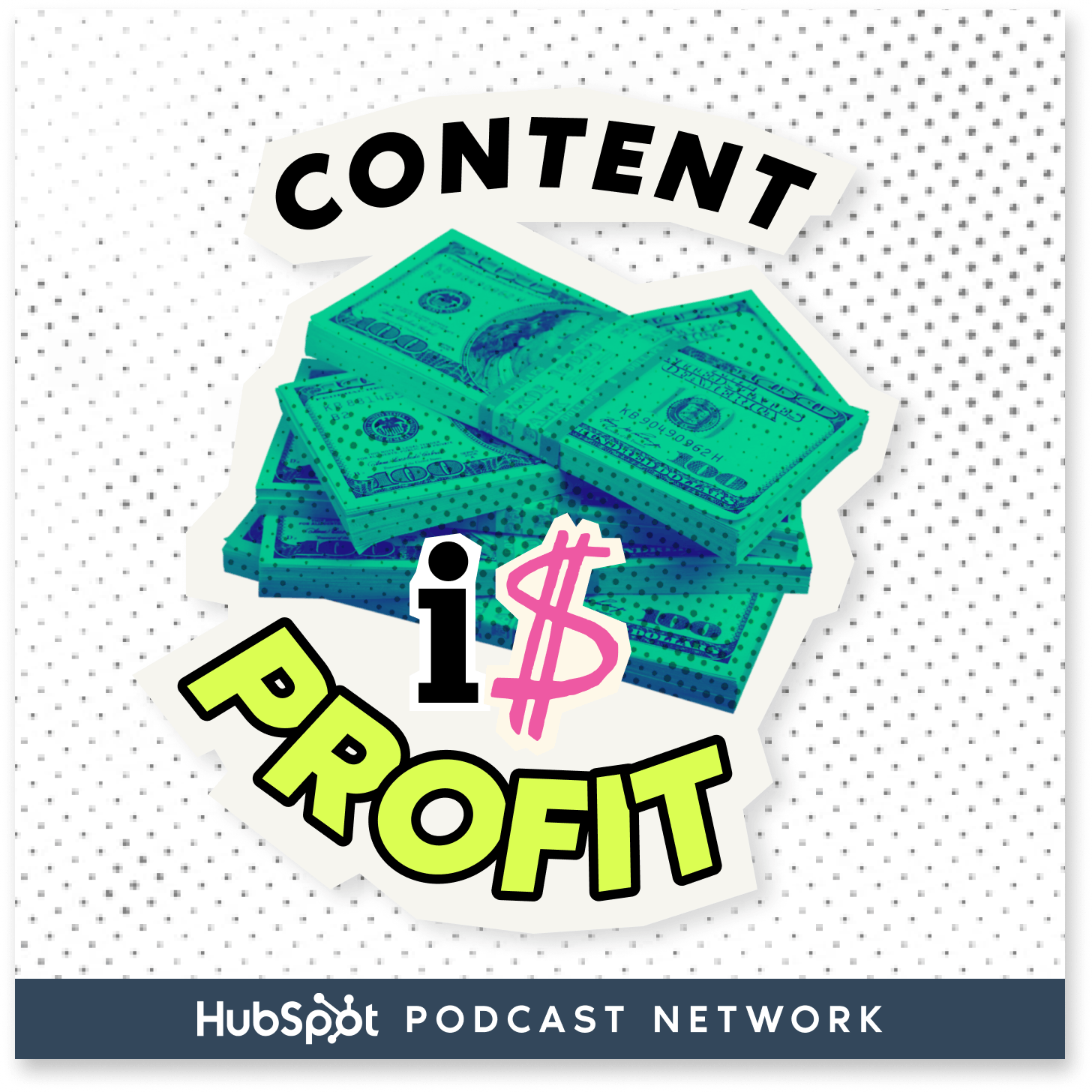
Content Is Profit
BIZBROS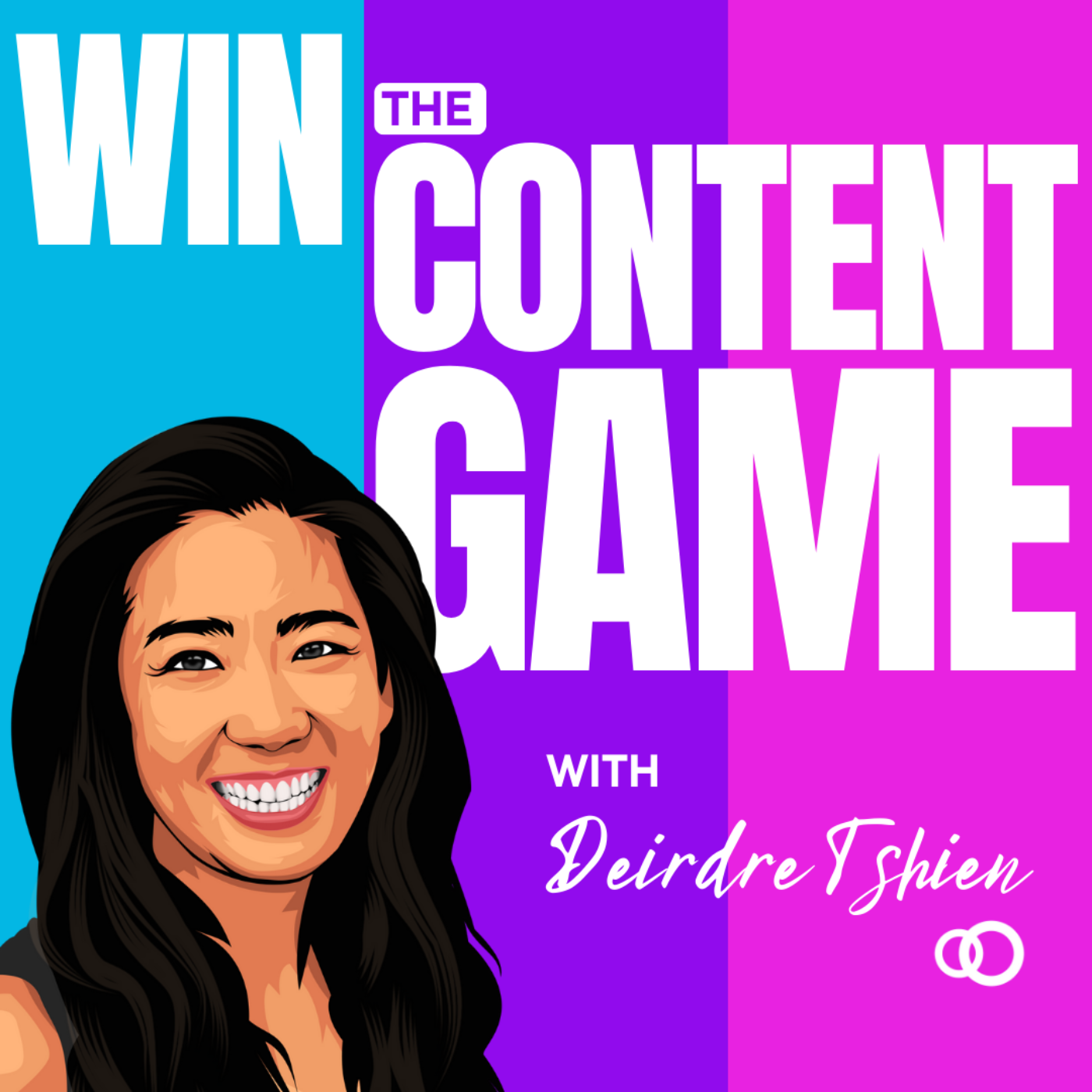
Win The Content Game
Deirdre Tshien - CEO & co-founder of Capsho, AI-powered Content Marketer (the fastest way to repurpose and market your expert content)
Fastlane Founders and Legacy with Jason Barnard: Personal Branding, AI Strategies, and SEO Insights
Jason Barnard Entrepreneur and CEO of Kalicube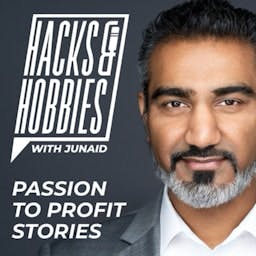
Hacks and Hobbies with Junaid Ahmed
Junaid Ahmed
I Have A Podcast by Vinnie Potestivo
Vinnie Potestivo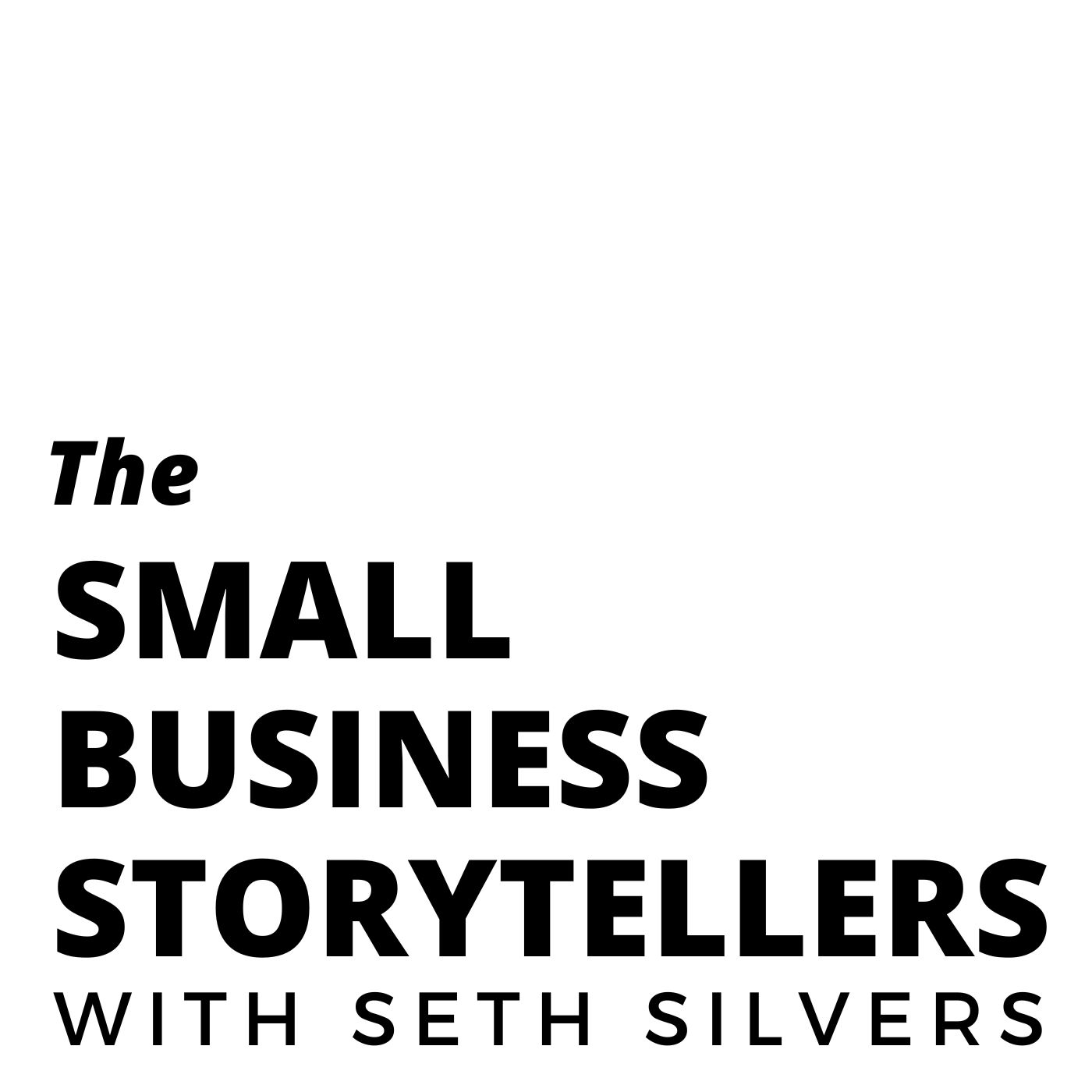
The Small Business Storytellers with Seth Silvers
Seth Silvers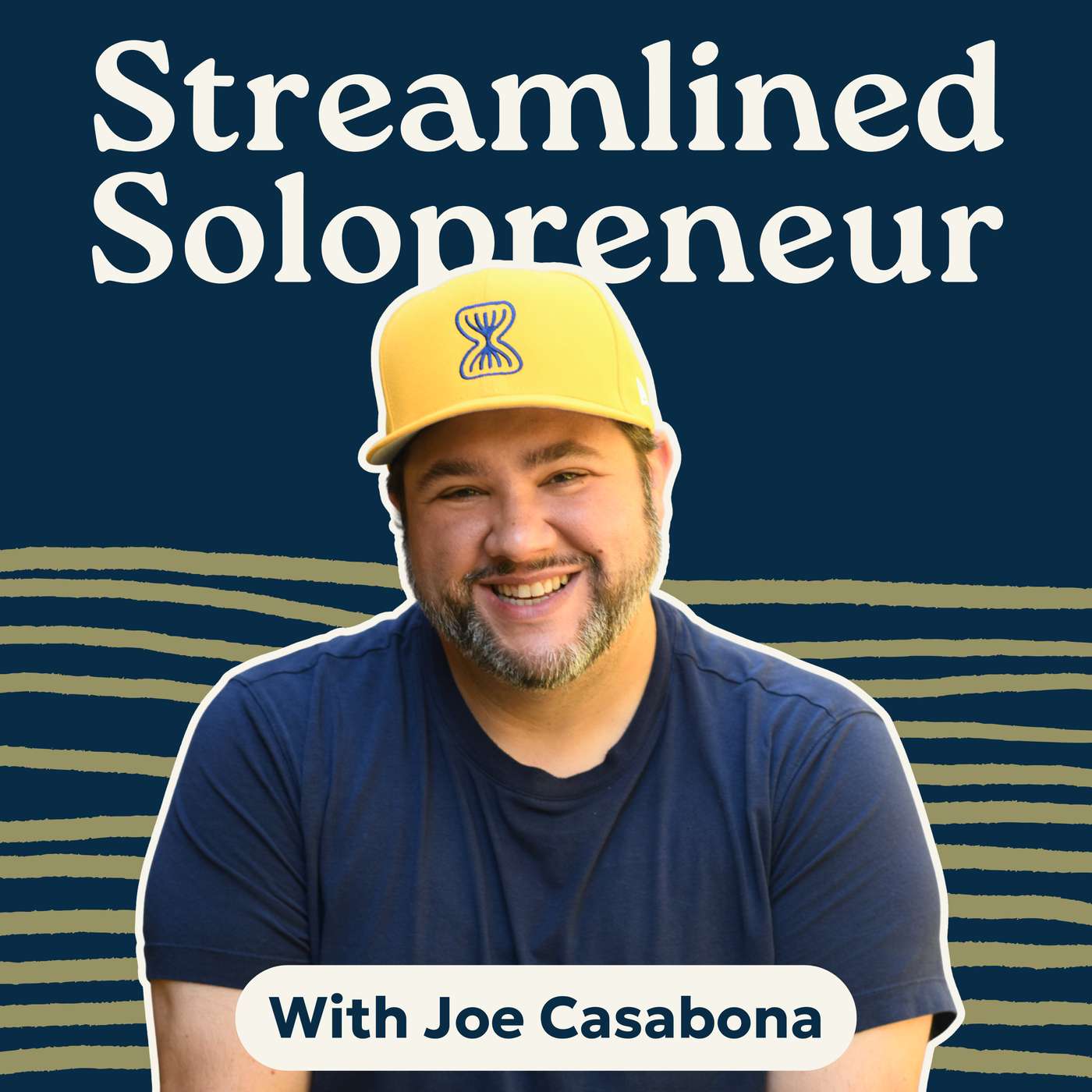
Streamlined Solopreneur: Tips to Help Small Business Owners Grow Without Burnout
Joe Casabona, Business Systems Coach
Insider Secrets to a Top 100 Podcast with Courtney Elmer | Podcasting Strategy for Business Growth
Courtney Elmer | PodLaunchHQ.comDo The Thing
Stacey Lauren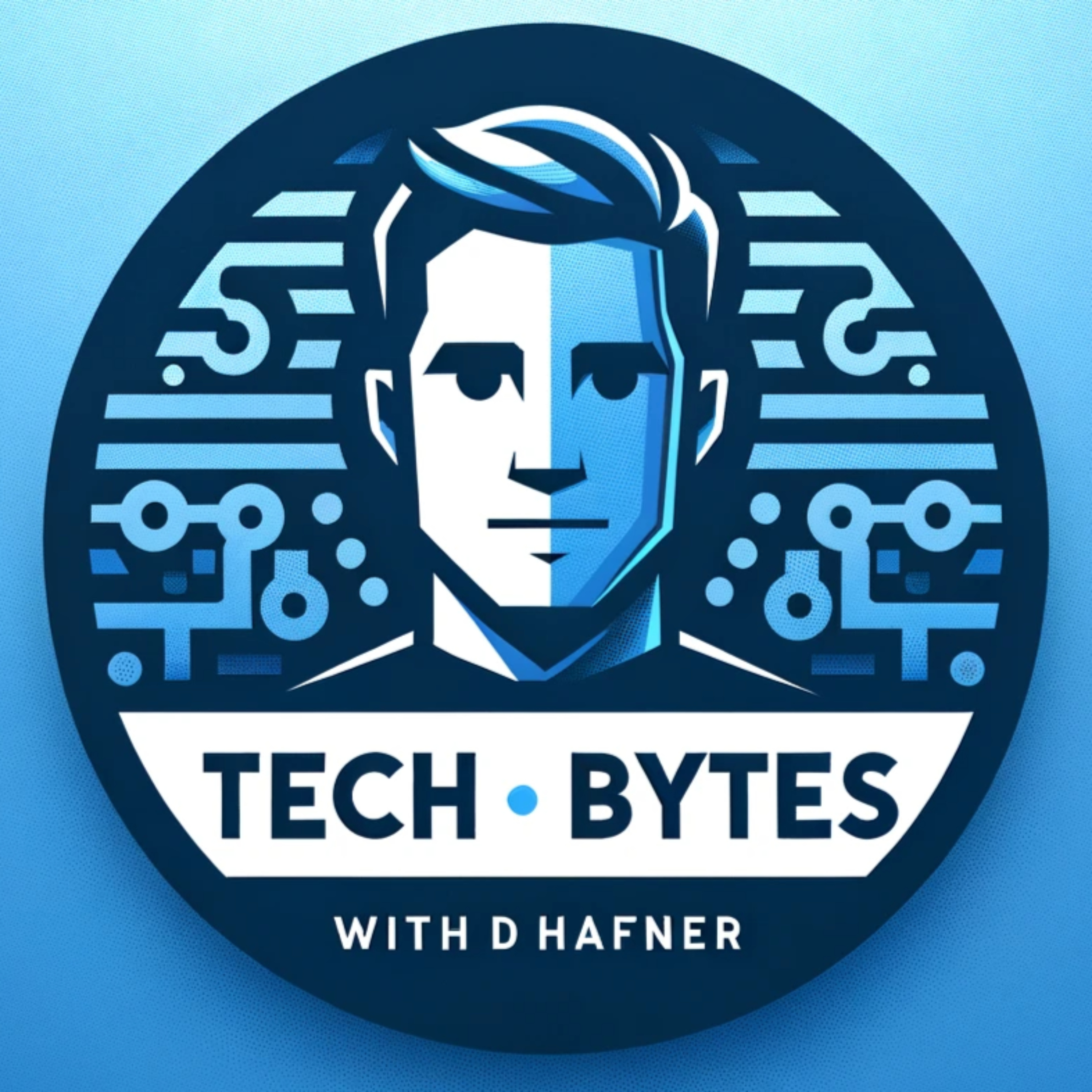
Tech Bytes - with Dan Hafner
Dan Hafner

